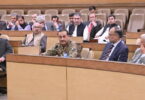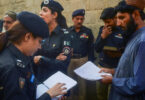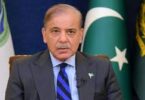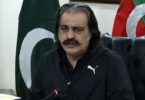CHANDIGARH (AA): India’s Supreme Court on Friday granted an extended time to a mediation panel in the decades old Muslim-Hindu dispute over the Babri Mosque, local media reported.
“We do not want to short circuit the mediation process. We will extend the time in order to enable the committee to complete the task assigned to it,” local daily The Hindu quoted Ranjan Gogoi, the chief justice of India, as saying in his address of the court hearing.
The mediation period was extended until Aug. 15.
In March, the same court ordered mediation by saying it would remain confidential and media would be barred from reporting on the talks, which were limited to eight weeks.
The mediation committee filed an interim report dated May 7, the Indian daily reported.
The three-member mediation panel in the controversial Babri Mosque case in northern India is headed by former judge Fakkir Mohamed Ibrahim Kalifullah with spiritual leader Sri Ravi Shankar and mediation expert Sriram Panchu the members. The Babri Mosque is said to have been built by Mughal Emperor Babur in 1526.
In 1885, a Hindu religious body filed a case in a Faizabad court asking for permission to construct a temple to honor the Hindu deity Ram inside the premises of the Babri Mosque. The permission was denied.
In 1949, a group of Hindus entered the premises of the mosque and installed an idol of Ram there.
Declaring the area disputed land, the then-government placed the premises under lockdown with the idol remaining inside with one official and one Hindu appointed as stewards of grounds. The district administration of Faizabad, under which Ayodhya city is administered, opened the premises to Hindus in 1986, allowing them to carry out their rituals. The situation remained calm until December 1992, when thousands of activists belonging to extremist Hindu groups and political parties along with BJP leaders entered Babri Mosque and demolished the Babri Mosque, erecting a Hindu temple in its place.
The destruction sparked nationwide riots that left around 2,000 people dead. Muslims demand a new mosque at the site, while Hindus claim that this was where their god Ram was born, demanding instead a temple at the site.
The dispute has been languishing in India’s legal system for years with no final outcome in sight.






